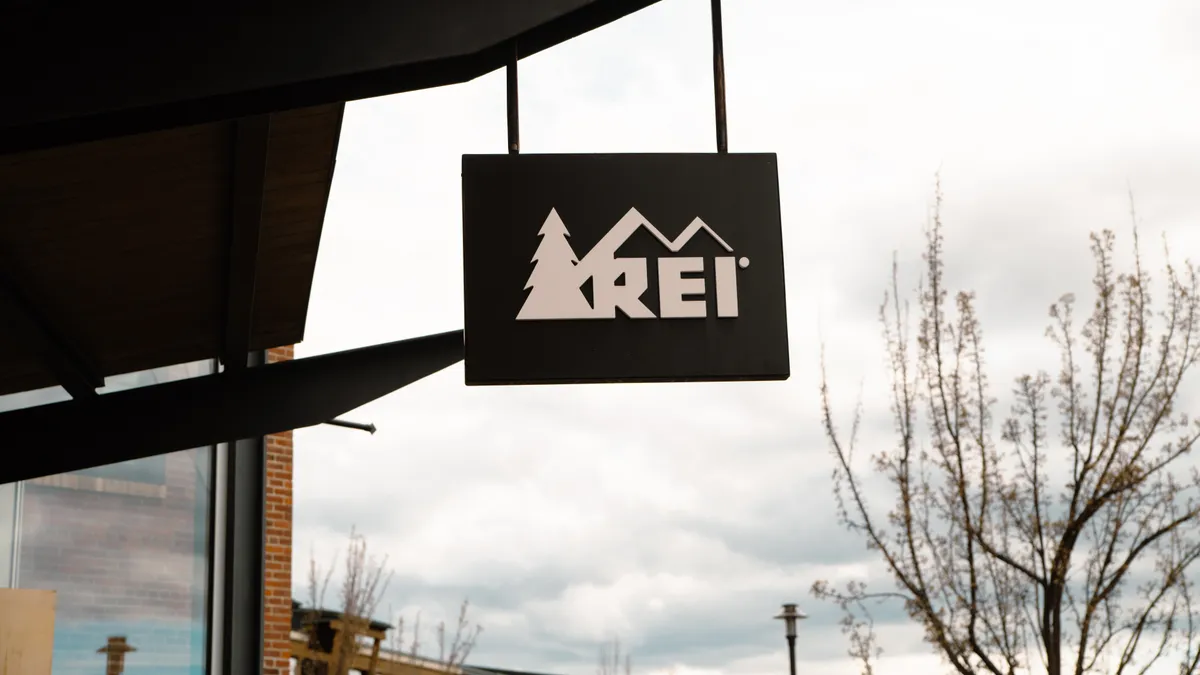Outdoor retailer REI added new environmental standards for its suppliers, including the requirement that vendors phase out the use of "forever chemicals," or PFAS, from cookware and textiles.
Cookware and textiles subject to a California law on synthetic chemicals will need to be free of PFAS, an abbreviation for perfluoroalkyl and polyfluoroalkyl substances, by 2024. All other textiles will be free of the chemicals by 2026, according to REI’s new rules.
The retailer has already barred PFAS from several other products, though it's only banned "long-chain PFAS" in categories such as apparel and footwear.
REI said in September that it has been “working for years to phase out PFAS, testing new alternatives in pursuit of the performance standards our customers expect and need in the outdoors.”
Last April, REI received an “F” score on PFAS from the Natural Resources Defense Council based on commitments at the time toward banning the chemicals. The highest score by an outdoor retailer at the time was Patagonia, which received a “B.”
Sujatha Bergen, director for health campaigns with NRDC, told Supply Chain Dive in emailed comments that REI’s "F" score was due to lack of transparency and commitments to phase out PFAS at the time.
“REI's recent updates to its PFAS guidelines would definitely catapult them to a better score but, more importantly, it'd address customers' concerns around protecting environmental and human health from these toxic chemicals,” Bergen said.
Bergen added that the retailer “should ensure any [PFAS] alternatives meet rigorous public health standards as well as issue periodic public reports on their progress.”
Last October, REI was hit with a class action lawsuit by customers after the company’s private label apparel products were found to potentially contain enough long-chain PFAS to be considered intentionally used, despite the company’s ban on the chemicals in certain product areas at the time.
REI has moved to dismiss the lawsuit, arguing that the plaintiffs weren’t able to show any harm done or identify which, if any, PFAS were definitively present in the products. “This lawsuit is based on conjecture, erroneous conflations, and conclusory assertions — but no concrete facts,” the company said in its motion to dismiss.
The member countries of the European Union this year introduced a proposal that would ban thousands of PFAS. The body’s official position currently is that “the use of PFAS is phased out in the EU, unless it is proven essential for society.”
The California ban on PFAS takes effect in 2025. REI has said that it supports the state’s law.
The widely used chemicals break down slowly over time and are found in the blood of humans and animals — some with toxic effects — as well as in air, water and soil worldwide, according to the Environmental Protection Agency.
Beyond addressing PFAS, REI also introduced rules for suppliers to track their climate footprints, a requirement that will kick in at the end of 2024.
The retailer said it is engaging with its high-volume suppliers in setting “science-aligned” greenhouse gas reduction targets. REI previously pledged that brands representing 55% of its sales volume would have targets in place by 2025.















